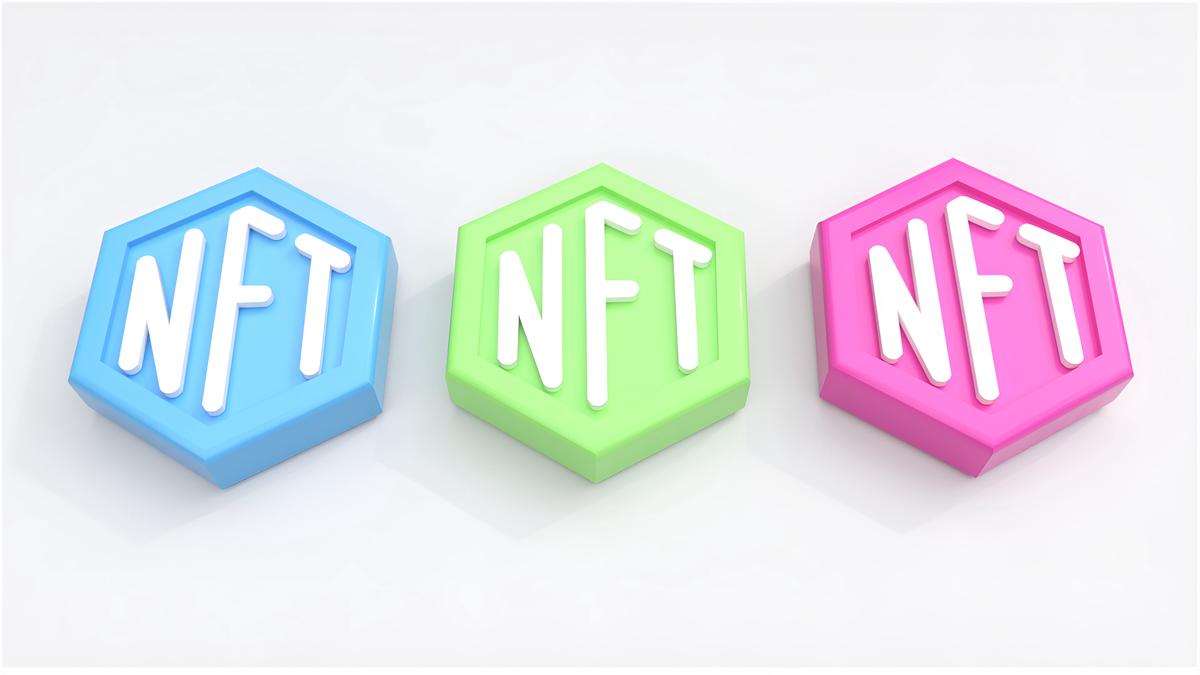As we navigate the digital transformation of our world, it is evident that emerging blockchain technologies and cryptocurrency trends stand on the forefront of this revolution. From the rapid ascent of blockchain gaming, signifying a new era of digital ownership and interactivity, to the growing implementation of NFTs in sectors like the music and entertainment industries, we find ourselves standing at the precipice of a new epoch. Similarly, ESG initiatives in crypto assets, the evolving regulatory landscape, and the exponential growth of decentralized finance (DeFi) further elucidate the transformative potential of these technologies. This essay unravels these top crypto trends predicted for the winter of 2023, offering fresh insights into what we can expect from this fascinating space.
Contents
Rise of Blockchain Gaming
The Future of Digital Ownership and Interactivity
Blockchain gaming represents the fusion of cryptocurrency and the gaming industry, leading to a new era of digital ownership and interactivity. The unique blockchain technology offers gamers the ability to truly own and control their virtual assets. With the introduction of cryptocurrencies and Non-Fungible Tokens (NFTs), gamers can have authentic ownership of digital items and trade them freely within and across different gaming environments.
A Game Changer in the Gaming Industry
Popular games like Axie Infinity have leveraged on this concept and are leading the trend. These games use blockchain to decentralize assets, thereby shifting power and control from the game developers to the players. Having unique and rare items doesn’t just mean in-game bragging rights but can potentially translate to real-world monetary value. This makes gaming not just a leisure activity but also a potential source of income, thereby disrupting traditional gaming models.
The Influence of Blockchain in Virtual Reality and Metaverse
The marriage of blockchain and gaming has further implications with the rise of virtual reality and the metaverse. In these expanded digital spaces, the idea of digital ownership becomes more significant. Owning a piece of land in a popular metaverse or a rare item in a VR game could potentially yield substantial returns.
Decentralization and Beyond
In addition, the decentralized nature of blockchain also promotes the democratization of gaming. Instead of centralized servers controlled by a single entity, games can run on decentralized platforms, offering improved transparency, security and fairness. Decentralization can also facilitate the emergence of player-driven economies and governance structures, giving users more influence over game development and management outcomes.
The Intersection of Gaming and Cryptocurrency
As blockchain gaming continues to grow, we can expect the lines between gaming and cryptocurrency to increasingly blur. This new frontier in the crypto world will likely see more games incorporating elements of cryptocurrencies and vice versa. Adoption of blockchain technology by game developers will not only revolutionize the gaming industry but also introduce new opportunities and challenges for gamers, developers and investors alike.

NFTs as Concert Tickets
Non-Fungible Tokens as Concert Tickets
NFTs, or non-fungible tokens, have begun to infiltrate the music and entertainment industries in an exceptional way – as concert tickets. Their integration into this realm is an innovative strategy to combat ticket fraud and counterfeiting. With the unhackable nature of blockchain technology, these NFT-based tickets provide a level of security and authenticity unparalleled by traditional ticketing systems.
Unique Opportunities for Artists and Fans
With concert tickets as NFTs, artists are provided with an exciting platform to establish a deeper connection with their fan base. Artists can attach unique rewards to their concert ticket NFTs, such as merchandise, backstage passes, or even digital art pieces. This not only raises the value of the ticket but also elevates the overall concert experience for the fans.
Revolutionizing Event Ticketing
The idea of transforming tickets into NFTs is something that’s expected to completely revolutionize event ticketing. Traditional problems such as ticket scalping and fraud could become nonexistent. Fans will have confidence knowing their purchased tickets are legitimate, and artists can ensure their tickets are landing in the hands of genuine admirers, creating a fair and controlled market.
Digital Art and Fan Engagement
Digital art, another burgeoning sector being driven by NFTs, can also find its place within this novel approach to ticketing. With NFT tickets, digital art can be more effectively intertwined with the music and entertainment industry. Fans receiving digital art along with their concert tickets adds an additional layer of engagement, further bridging the gap between artist and attendee.
Potential for Future Growth
As we move forward, the potential for integrating NFTs into various sectors only continues to grow. The crossover of NFTs and concert tickets could very well be the spark that incites a wave of other industries adopting blockchain technology. As it reshapes our experience of art, music, and entertainment, there are boundless possibilities waiting to be explored in NFT-led industry innovation.

Photo by dengxiangs on Unsplash
Crypto ESG Initiatives
The Emergence of Eco-Friendly Cryptos
With the mounting criticism against data center-driven cryptocurrencies such as Bitcoin because of their energy consumption, the market has seen a significant uptick in environmentally friendly cryptocurrencies. These alternatives aim to utilize less energy-intensive ways of mining, thereby decreasing their overall carbon footprint. Some cryptocurrencies are even designed to contribute directly to environmental causes. For example, SolarCoin is a global rewards program for solar electricity generation where users are rewarded with SolarCoins for generating solar energy.
Adoption of Sustainable Practices in Crypto Mining
At the same time, traditional crypto miners are making conscious efforts to incorporate sustainable practices into their operations to mitigate environmental harm. For instance, they are moving towards using renewable energy sources to power mining equipment. In fact, Bitmain, the world’s leading producer of ASIC chips for Bitcoin mining, announced a commitment to achieving 100% renewable energy use in its operations. Other miners have started using the heat generated by mining hardware for space heating, effectively delivering a more efficient use of energy.
Tokenization of Environmental Assets via Blockchain
Taking sustainability one step further, the tokenization of environmental assets using the blockchain is an emerging trend. This revolutionizing process creates digital tokens that represent real-world environmental assets, like carbon credits. These can then be traded on a blockchain in a transparent, secure and efficient way. This offers a promising new mechanism to help increase the scale and impact of environmental initiatives, such as forest conservation or renewable energy projects. Such tokenization can also lead to innovation in the financing of climate change mitigation strategies.
Transparent Management of Carbon Offsets
Blockchain has the potential to add unprecedented transparency to the carbon offsetting process. With blockchain’s public ledger, every transaction is visible, so it’s clear who holds what carbon credits at any given time. For example, Poseidon’s platform uses blockchain to link consumers and retailers with forestation projects, allowing users to offset their carbon footprint with every purchase. Transparency in this context encourages accountability in environmental stewardship initiatives, thereby pushing the focus from mere compliance towards genuine sustainability.
Addressing ESG Concerns
The ESG concerns that have hung over the world of cryptocurrencies, stoking debate and criticism, are now being addressed head-on by the very same technology. Crypto ESG initiatives offer investment opportunities that align with environmental, social, and governance values. This has proven attractive to investors and is expected to lead to a more responsible and mature cryptocurrency market. This also prompts a broader conversation about the influence of digital currencies on our society and environment, highlighting how they can be part of the solution rather than the problem.

Regulatory Shift in Cryptocurrencies
Understanding the Global Regulatory Landscape
As cryptocurrencies continue to permeate traditional financial systems, the laws and guidelines governing its use are becoming an area of significant focus. Around the world, governments and regulatory bodies are realizing the need to adapt to the dynamic nature of digital currencies. They aim to ensure that the activities in the crypto market aren’t beneficial to just token holders and traders, but it also protects individual investors and maintains the integrity of their respective countries’ financial system.
Evolution of Country Specific Regulations
Different countries have differentiated approaches to crypto regulations, resulting in a diverse global landscape. Some countries like Singapore and Switzerland have light regulatory guidelines that encourage crypto startups and traders in their jurisdiction. Other nations, such as China and India, have taken a more stringent approach, imposing restrictions and even outright bans on crypto activities. These varied regulations show the struggle policymakers face between fostering crypto innovation and protecting investors from potential fraud or loss.
Influence of Regulations on Market Trends
The shift in regulatory climate plays a significant role in shaping market trends and growth of the cryptocurrency industry. Regulatory greenlights may attract more institutional investors, pushing up the price of crypto assets and driving the growth of decentralized finance (DeFi) platforms. However, increased regulation may also deter some investors and traders resulting in a decline in market value and trade volume. The relationship between regulations and market trends underscores the influence of law on the growth and stability of the crypto market.
Role of Regulatory Framework in Crypto Adoption
Besides influencing market trends, suitability and efficiency of a regulatory framework significantly impact cryptocurrency adoption. Regulatory clarity is critical because it determines how companies interface with digital assets. In jurisdictions where clear guidelines exist, businesses can integrate cryptocurrencies into their operations with minimal legal risks. This could mean anything from accepting bitcoin as payment for services to holding cryptocurrencies as part of their investment portfolio.
Crypto Regulations Moving Forward
Looking at the constantly changing regulatory landscape, it’s crucial for individuals and businesses in the crypto space to stay informed about new policies and regulatory changes. The challenges faced by governments, regulators, and institutions try to strike a balance between embracing technological innovation and safeguarding consumer interest underscore the importance of continuous monitoring and reassessment of regulatory strategies in this digital age. The future direction of the crypto market lies in the efficient adaptation and understanding of this evolving regulatory landscape.

Decentralized Finance (DeFi) Expansion
A Revolution – Decentralized Finance (DeFi)
Breaking away from traditional systems in finance, decentralized finance or DeFi is remapping the landscape of the crypto world. Essentially, DeFi provides a platform for users to access financial services such as borrowing, lending, and earning interest right from their digital devices without recourse to banks or other third-party intermediaries.
DeFi expands beyond Ethereum
Often associated with Ethereum due to its early adoption and ample variety of offerings, DeFi is now taking strides beyond this network to embrace other blockchains. Key among these are Solana, Binance Smart Chain, and Polkadot. Each of these platforms attest to robust growth, testifying to the migration of DeFi to diverse domains.
Solana leads the DeFi expansion into new territories
Solana, with its high-speed, low-cost transactions, is making waves in the DeFi world. It has been able to leverage this for a steady adoption rate combined with a good number of DApps (decentralized applications) deployed on its network.
The Binance Smart Chain takes a piece of the DeFi pie
The Binance Smart Chain, on the other hand, has gained traction due to its interoperability feature with Ethereum. In addition, it boasts a thriving ecosystem of DeFi applications, contributing to its burgeoning growth.
Polkadot marks the growth trajectory of DeFi
Meanwhile, Polkadot with its unique multi-chain structure offers an appealing platform for the DeFi market to build upon. Through Polkadot, DeFi services can achieve greater scalability and increased speed, resulting in streamlined operations and improved user experiences.
Growth ahead for DeFi
As understanding and exposure to DeFi increase among users, the trend promises an exponential growth phase with greater adoption and proliferation. With DeFi’s intrinsic advantages and ever-evolving space, it can be safely posited that this is just the beginning of a larger, much-needed financial revolution.

With no sign of stalling, blockchain and cryptocurrencies are poised to continue on their transformative path, driving unprecedented changes across various sectors. From creating a parallel world with blockchain gaming to changing traditional practices like event ticketing and financial transactions, these technologies are redefining rules and boundaries. Furthermore, the drive towards integrating sustainability measures into crypto operations and navigating through regulatory challenges reveals the maturing landscape of this domain. Embracing and understanding these burgeoning trends will be critical for not just enthusiasts and hobbyists, but also for anyone willing to be part of this groundbreaking digital evolution.
